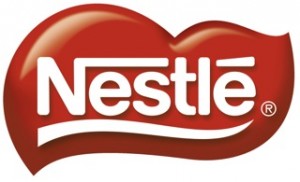If you’re like me then you expect the best in people. And you trust that when someone tells you something, it’s the truth. Call me old fashioned but that’s the way my world operates.
So when I recently found out that there are companies within the health and food industries that seem to have completely different aims and values but are somehow intimately intertwined, I was shocked. It was like finding out the Easter bunny didn’t exist when I was 8 years old all over again. Just wrong.
To give you a taste of what I’m talking about, Nestlé, famed candy bar producer, owns Jenny Craig – queen mother in the weight loss world. Hershey, best known for their milk chocolate bars, owns Dagoba – an artisan chocolate producer that only works with quality, organic ingredients while remaining sustainable. And soda giant Pepsi owns Naked Juice, which produces some of the healthiest, all natural juice beverages on the market.
Is it just me or does it seem like these companies have next to nothing in common when it comes to heart and mission? Although they may be selling like products, that’s where the similarities end. These smaller companies seem to be selling a little piece of their soul when they let mega corporations buy them out. It’s like great photographers turning to cheap paparazzi photos for a living. The money’s good but is it worth it?
But the more you look into the subject, the more ties you’ll find and it starts to become less and less shocking. Slim-Fast Foods Company, for instance, is owned by Unilever, the world’s largest ice cream manufacturer. And Kellogg (Corn Pops anyone?) owns Bear Naked, Kashi, and Morningstar Farms – all health food producers. These days, it’s just the way it goes and it seems to be all business.
John LaRosa of Marketdata Enterprises, which has specialized in diet market analyzation for 23 years, wasn’t surprised by the news either. In fact, one thing he said he’s noticed is that when a big multinational company takes over a popular brand, they usually “drive it into the ground.”
“Perfect example: Unilever buying Slim-Fast. Slim-Fast used to be a $600 million meal replacement brand. Now it’s a fraction of that,” said LaRosa. “I don’t have high hopes for Jenny Craig under Nestlé either. Based on the troubles NutriSystem has had the past few years – sales down 21% last year selling its $250/month program – I don’t see how Jenny could be doing much better selling a $400/month food plan, even with Mariah Carey. The economy just doesn’t justify it any more for most consumers.”
Beyond the moral question comes the perhaps more practical question: Can larger companies really carry on the success of the smaller companies they acquire? In some cases, yes. But based on the data LaRosa’s seen, he doesn’t seem to think so.
“Large, diversified conglomerates can never understand the subtle nuances in the market that make the original creators of the brand successful. They aren’t close enough to the market.”
I suppose I can live with the scandalous acquisitions as long as the products remain the same. And I might even laugh a little when a big company takes over a smaller one to “improve it” but ends up fumbling its success away. Gives hope to the underdog, I suppose.
But if I ever look at a Naked Juice label and see high fructose corn syrup, Pepsi is going to have one livid customer on their hands.
As for my differences with my parents on the whole Easter bunny lie, I’ll have to reconcile that on my own time.
Also Read:
Mariah Carey Loses 30 Pounds in Three Months on Jenny Craig

I’ve eaten Jenny Craig food for years because I have Multiple Sclerosis. I haven’t walked in 25 years, so need prepared food. I call in my order to the local center, my husband picks it up. But, JC has changed their policy and now I must have a consultation in order to buy the food. I don’t drive or walk. Just how am I to go to the center–impossible. This does not comply with ADA rules…..please clear this up for me. I need the food weekly.
Suzanne
Nestle no longer owns Jenny Craig. It’s been sold at least twice in the last 10 years.